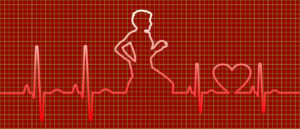Supporting Psychological Adjustment After a Heart Attack
- Home
- »
- Coronary heart diseases
- »
- Supporting Psychological Adjustment After a Heart Attack

A heart attack can trigger a wide range of emotional responses. Recognizing these reactions and learning about coping strategies can make this demanding period more manageable.

The event itself often acts as a profound emotional shock. Fears may arise, and one’s ability to adapt is put to the test. Coming to terms with the fact that the heart — a vital organ — has been damaged by disease can be particularly difficult.
This worry may be intensified by comparisons to other people’s experiences. Knowing someone who passed away following a heart attack, or facing heart disease for the first time, can heighten fear and increase feelings of vulnerability.

Each person goes through this stage in their own way. Emotional responses are shaped by various factors, such as the severity of the heart attack, the circumstances surrounding the event, personal history, individual personality, current stress levels, and available coping resources.
There are three main aspects to consider when addressing the psychological effects of a heart attack:
- The most common emotional reactions
- Strategies that can support adjustment
- Recognizing when it is important to seek help
Supporting Psychological Adjustment After a Heart Attack
A heart attack can disrupt both body and mind. It’s not uncommon to feel a mix of emotions: fear, discouragement, confusion. Some people struggle to catch their breath again—others, to regain confidence in their health. Adapting to this new reality takes time… and a bit of support.
Here are a few approaches that may help during this adjustment period:
- Taking care of yourself
Being actively involved in medical follow-up can provide a sense of control. This includes taking prescribed medications regularly, attending appointments, and gradually adopting new lifestyle habits. There’s no need to change everything overnight—taking it one step at a time helps avoid discouragement.
Learning about the illness and its treatments also helps reduce fear and improve understanding. Don’t hesitate to ask questions or share concerns with the care team.
- Maintaining connections and breaking isolation
Staying socially and emotionally engaged is essential. Talking about how you feel with loved ones or trusted people can make a big difference. Resuming usual activities, as your condition allows, helps restore balance. Getting back to personal projects, even small ones, can foster well-being.
- Coping with emotions
Accepting what comes without being too hard on yourself is part of the process. It’s normal to feel fear, sadness, or impatience. Giving yourself time and setting realistic expectations is important.
Some people find new meaning in their experience and decide to reassess their priorities or make choices that better reflect who they are.
- Protecting your sleep
Good sleep helps recovery on every level. Keeping a stable routine, avoiding screens in the evening, limiting caffeine, staying active during the day, and creating a calm environment before bedtime are all simple yet effective habits. If sleep problems persist, it may help to consult a professional.
- Reducing irritants
Limiting alcohol, stimulants, and psychoactive substances helps maintain emotional balance, sleep quality, and heart health.



























